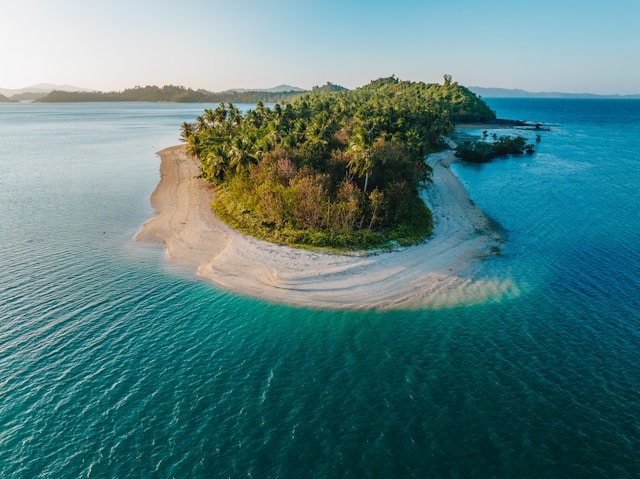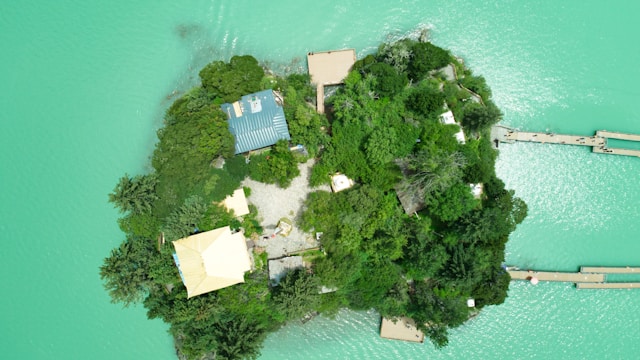Ciao, amici! Isabella here, and today we’re diving deep into something truly special: investing in a private island. It’s not just about luxury; it’s about crafting an unparalleled experience, a legacy. But, let’s be real, it’s also a serious undertaking. So, grab a cappuccino (or a glass of Prosecco, if you’re feeling adventurous!), and let’s explore the ins and outs of island ownership.
The Allure of a Private Island
Oh, the thought of owning your own island is intoxicating! Imagine: crystal-clear turquoise waters lapping against pristine shores, the gentle sway of palm trees, and absolute privacy. It’s the ultimate escape, a place where you can truly disconnect from the world and reconnect with yourself, your loved ones, or maybe just a really good book. I’ve seen it firsthand – the magic that unfolds when you have your own little slice of paradise. It’s more than just a vacation; it’s an investment in memories, in experiences, in a lifestyle that’s simply unmatched.
Dream vs. Reality: What to Consider Before Taking the Plunge
Okay, before we get swept away by the romanticism, let’s ground ourselves. Owning a private island isn’t all sunshine and Aperol spritzes. There are real logistical, legal, and financial considerations that can make or break the dream. Trust me, you don’t want your island paradise turning into an island nightmare! This isn’t like buying a vacation home, folks. This is a whole different ball game.
First off, remember that even though you own the island, you’re still under the jurisdiction of national and sometimes local governments. So, zoning laws, environmental regulations, building codes – they all apply. You need to be aware of these things upfront because they’ll seriously impact what you can do with your island.
Navigating the Legal Landscape
Now, let’s talk specifics. One of the first things you need to do is research island ownership laws, geography, and the local climate. Ensure that the island is habitable and that the local infrastructure can support your needs. You’ll want to work with experienced legal professionals who specialize in international property law and understand the specific regulations of the region where your island is located. This includes environmental regulations, building codes, and potential restrictions on development. It’s important to conduct thorough due diligence to uncover any hidden legal issues or potential liabilities. Plus, depending on the location, you might need to navigate complex tax laws and residency requirements. Fun, right? (Okay, maybe not fun, but definitely necessary!).
Financial Planning: More Than Just the Purchase Price
Alright, let’s talk money. The acquisition cost is just the tip of the iceberg. I mean, private islands can range anywhere from a few hundred thousand to tens of millions of dollars. That initial investment can be quite a bit but there’s more to it! Think about the ongoing expenses like property taxes, insurance, security, and maintenance. And if you’re planning on developing the island – building a villa, installing utilities, creating infrastructure – that’s a whole other level of investment. You’ll need to develop a solid financial plan that accounts for both the upfront costs and the long-term expenses of island ownership. Exploring alternative financing options, such as private lenders or investment partnerships, might also be worth considering.
Developing Your Island: A Blank Canvas
So, you’ve bought your island, and now it’s time to make it your own! This is where things get really exciting, but also potentially overwhelming. Developing a private island is like starting with a blank canvas. You have the opportunity to create something truly unique, but you also need to carefully consider the environmental impact and sustainability of your development plans. From eco-friendly construction methods to renewable energy sources, there are many ways to minimize your footprint and preserve the natural beauty of your island. It’s a delicate balance between creating a luxurious retreat and protecting the environment.
Managing Your Island Paradise
Once your island is developed, you’ll need a plan for managing it. Will you hire a full-time staff to handle maintenance, security, and guest services? Or will you rely on local contractors and service providers? This is a decision that depends on your budget, your lifestyle, and the level of privacy and control you desire. If you plan to rent out your island, you’ll also need a marketing and booking strategy. It’s a business, after all! (Even if it’s a very glamorous one.)
The Potential ROI: Beyond the Financials
While the potential for profit in private island investments is significant, these ventures require substantial financial resources, careful. Ultimately, owning a private island is about more than just money. It’s about creating a legacy, a sanctuary, a place where you and your loved ones can escape the ordinary and experience the extraordinary. And in that sense, the return on investment is priceless.
Final Thoughts
Investing in a private island is a complex but rewarding endeavor. Do your homework, surround yourself with experts, and be prepared for the challenges. But most importantly, embrace the adventure. After all, you’re not just buying an island; you’re buying a dream!
Alright, that’s all for today, folks! If you have any questions or want to chat more about private island rentals, don’t hesitate to reach out. And remember, life is too short for ordinary vacations!
Ciao!


